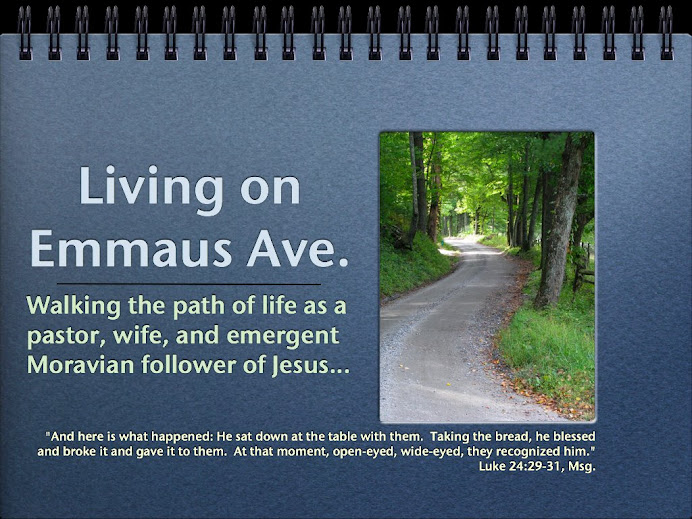We have Communion (Eucharist/Lord's Supper) this coming Sunday for the First Sunday in Epiphany (1/11/09). I've been thinking about Communion all week, and one song has been running through my head constantly. It's on a CD I heard of years ago from my Preaching/Worship professor at Moravian Seminary, Rev. Dr. Glen Stoudt, and I received the CD for Christmas. The singer/songwriter is
Carrie Newcomer. The album is
"Betty's Diner: The Best of Carrie Newcomer." [click the link to visit the site and hear the song] It's the second song on this album and can be heard on her website . I highly recommend the whole album.
As a note: Another blogger has created a devotion around the song, complete with lyrics and questions in case you would like to read the lyrics or see the questions:
http://songdevotions.blogspot.com/2004/12/bettys-diner-by-carrie-newcomer.htmlThe thing I really like about this song is the feminine image of Jesus as the Diner waitress who serves the food in the midst of the "stuff" of life. "Miranda" is the "waitress" in the diner where folks come in from the cold to find a hot meal, unwind, and go about their lives.
For some people, this might be a disturbing image of Jesus Christ, but I find much comfort in it. I like the idea because I see that as what we are doing when we are serving the bread and cup in Communion--it's being served and received in the midst of the "stuff" of life. I know when I receive Communion, it is a pause in the midst of whatever "stuff" is going on for me, and gives me strength to proceed, as well as a moments to pause and reflect on the true meaning and purpose of my life in Christ.
It also makes me think about those communion moments in my life (the little "c" kind) where breaking of bread and drink occur in daily life that are holy, but not Communion (the big "c" kind like during worship in church) in the formal sense. Jesus tells us "every time we eat this bread and drink this cup, you proclaim the Lord's death, until He comes." Where are other communion moments in our lives? Discussions over food are often very holy moments among family and friends. Where might we see Christ dining with us at the counter or the booth in Betty's Diner this week?





